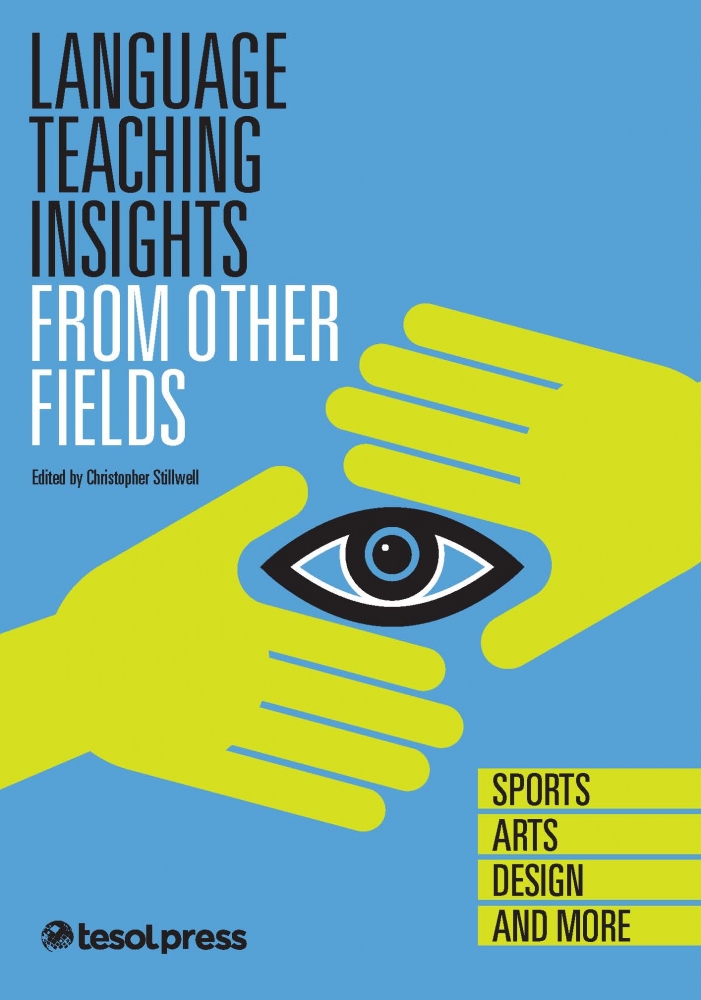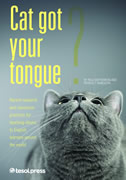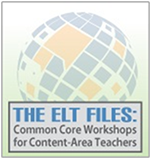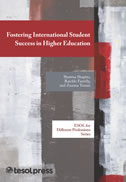Free Activities From New Ways in Teaching Vocabulary, Revised
Edited by Averil Coxhead
|
These activities come from New Ways in Teaching Vocabulary, Revised, edited by Averil Coxhead (TESOL, 2014). Look for the book on sale in the TESOL Bookstore in early November, and check out the other books in the New Ways series. |
Accuracy Vocabulary Party
Natalia Petersen
Levels: All
Aims: Consolidate accurate use of target vocabulary in context
Class Time: 15 minutes+
Preparation Time: 5 minutes
Resources: List of target words
This game requires previous study of the target words. It is a good way for students to produce the target words in context, focussing on form.
PROCEDURE
- Allocate a word to each student in the class from the list of target words.
- Ask students to write a question using the target word which they can ask their classmates. Family words are fine.
- Check the questions for accuracy before giving students a slip of paper to write their question on.
- Once all students have a slip with a question, ask them to bring the slips to the front of the room and place them face down on a table.
- Ask students to take a slip each, look at the question, memorise it and hide the slip behind their back.
- Students then have a “vocabulary party,” mixing and mingling, taking turns to ask and answer questions.
- After students have asked a partner their question, they take another question and follow the same procedure, finding new partners to ask.
- Conclude the task by asking students if they can remember any of the questions.
CAVEATS AND OPTIONS
- Prepare the questions on the slips before class. This ensures students have good models to memorise.
- Slips can be saved and reused with a focus on developing fluency so that students rely less on the slips and are given less time to ask and answer with each repetition.
Risky Business
Philippa Lyall
Levels: All
Aims: Notice and correct vocabulary errors (family word or collocation) in writing;
Explain accurate use of vocabulary in groups and to the class
Class Time: 20 minutes+
Preparation Time: 10 minutes
Resources: Whiteboard
Pens
Six sentences containing one or two vocabulary errors from students’ writing
PROCEDURE
- Divide the class into mixed-ability teams of three to four students.
- Provide each team with a list of six sentences containing one or two vocabulary errors from their writing (one copy of the list of sentences for each team).
- Assign a section of whiteboard to the teams for their answers and totals. Start each team with “$500” to bet with.
- Ask the class, “Are these sentences correct?” Also mention that there may be one or two correct sentences.
- Have the teams quietly study and discuss the first sentence for no more than 5 minutes. Then ask them to put their correction for the sentence on the whiteboard and decide how much of their money they are prepared to bet on whether their correction is right.
- Invite one team with the correct answer to explain their correction(s) to the class. Confirm the answer and tell the team with the correct answer that they win what they bet; those with incorrect answers deduct their bet from their total of money.
- Move onto the next sentence and continue as above.
- The team with the most money at the end wins.
CAVEATS AND OPTIONS
- Keep the pace quite fast and make sure everyone stops to listen carefully to the explanation of the correct answer given by their peers.
- Teams can get quite competitive and noisy.
- Include one correct sentence from a student’s writing (anonymously) with a particularly nice feature you want the others to notice.
- Teams can borrow from the bank to stay in the game if they have to.
- The game can also be made more challenging with a grammar error as well.
TC Monthly Giveaway Congratulations to Robert Powell of Winston-Salem, North Carolina, USA, for being the winner of the October 2014 TESOL Connections Monthly Giveaway. Robert won a free registration to the 2015 TESOL Annual Convention & English Language Expo in Toronto Canada.
This month, TESOL is giving away
a free copy of
Language Teaching Insights From Other Fields:
Sports, Arts, Design, and More.
There will be three lucky winners!

How would a restaurant reviewer critique an essay? How would a martial arts master facilitate language practice? How would a bartender create a supportive environment for learning? And how would a social activist promote critical thinking in the classroom? Answers to these questions and more can be found in chapters that offer practical tips from language teachers with extensive experience in other fields. It is a book full of surprises that translate into new ways of thinking about teaching and the classroom.
Read more about the book and get a sample chapter from the TESOL Bookstore.
Click here to enter
Drawing closes 27 November 2014, 11:59 pm EST
TESOL Blogs Interested in writing a blog for TESOL?
Contact Tomiko Breland with your idea or for submission details.
Check out the latest TESOL Blogs:
|
8 Major Trends in the Global ELT Field, by Yilin Sun
 TESOL President's Blog: Recently, I have been invited to share my perspectives on major trends in the global ELT field at several international conferences. Here’s a summary of what I shared with the participants—of course this isn’t a comprehensive list. I think that trends in today’s ELT field can be broken down into three major categories: globalization, localization, and interdisciplinary collaboration. I’d love to hear your thoughts on current trends, as well. Read More. TESOL President's Blog: Recently, I have been invited to share my perspectives on major trends in the global ELT field at several international conferences. Here’s a summary of what I shared with the participants—of course this isn’t a comprehensive list. I think that trends in today’s ELT field can be broken down into three major categories: globalization, localization, and interdisciplinary collaboration. I’d love to hear your thoughts on current trends, as well. Read More.
|
|
Culture Shock: A Mixed-Level Speaking Activity, by Alexandra Lowe
 If you are teaching English as a second language (ESL) rather than English as a foreign language (EFL), it’s likely that a significant portion of your adult students are currently experiencing some degree of culture shock as a result of their move to an English-speaking country. As Judie Haynes recommends in her recent blog post on this topic, I like to address this issue up front in the first week of class. Doing so allows my adult students to begin to reflect in a safe environment on some of the challenges they are facing as they confront our language and culture. Read More. If you are teaching English as a second language (ESL) rather than English as a foreign language (EFL), it’s likely that a significant portion of your adult students are currently experiencing some degree of culture shock as a result of their move to an English-speaking country. As Judie Haynes recommends in her recent blog post on this topic, I like to address this issue up front in the first week of class. Doing so allows my adult students to begin to reflect in a safe environment on some of the challenges they are facing as they confront our language and culture. Read More.
|
|
Demystifying Audience and Genre: A Classroom Activity, by Elena Shvidko
 The concepts of audience and genre tend to be challenging for second language writers. Even when students seem to understand them theoretically, they struggle applying their knowledge to practice. We can help them demystify these concepts through simple classroom activities. Let me share one of them. Read More. The concepts of audience and genre tend to be challenging for second language writers. Even when students seem to understand them theoretically, they struggle applying their knowledge to practice. We can help them demystify these concepts through simple classroom activities. Let me share one of them. Read More.
|
TESOL Bookstore

NEW from TESOL Press!
 Cat Got Your Tongue? Teaching Idioms to English Learners Cat Got Your Tongue? Teaching Idioms to English Learners
Paul Mcpherron & Patrick T. Randolph
Why do questions about idioms often leave us "tongue-tied" in our classrooms? This book takes a look at recent research and classroom practice for teaching idioms to English learners around the world.
 The ELT Files: Common Core Workshops for Content-Area Teachers The ELT Files: Common Core Workshops for Content-Area Teachers
On-demand, in-service professional development training workshops that address the needs of beginning English learners and how those needs are affected by the adoption of the Common Core State Standards. Workshops available for early elementary, upper elementary, middle school, and high school levels. Each workshop includes a presenter training guide, ready-to-use Power Point, and handouts.
 Fostering International Student Success in Higher Education Fostering International Student Success in Higher Education
S. Shapiro, R. Farrelly, Z. Tomaþ
Gain a better understanding of international students' needs through quotes, anecdotes, and reflection questions, and learn specific strategies, resources, and activities that serve as tools for responding to common instructional challenges.
|
 |
|
|
 |
| U.S. Embassy ESL/EFL Teaching Projects, The English Language Fellow Program, Worldwide
IEP Faculty (Full Time), Spring Int'l Center, University of Arkansas, Fayetteville, Arkansas, USA
Adjunct EFL Instructor (Spring Semester), Clark University, Jinan, Shandong Province, China
Want to post your open positions to Job Link? Click here.
To browse all of TESOL's job postings, check out the TESOL Career Center. |
 |
|
 |
| ADVERTISEMENT |
 |
 |
|